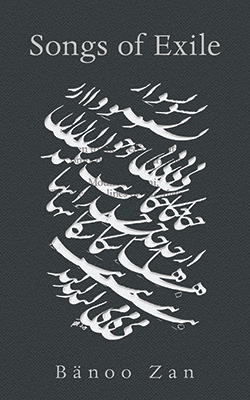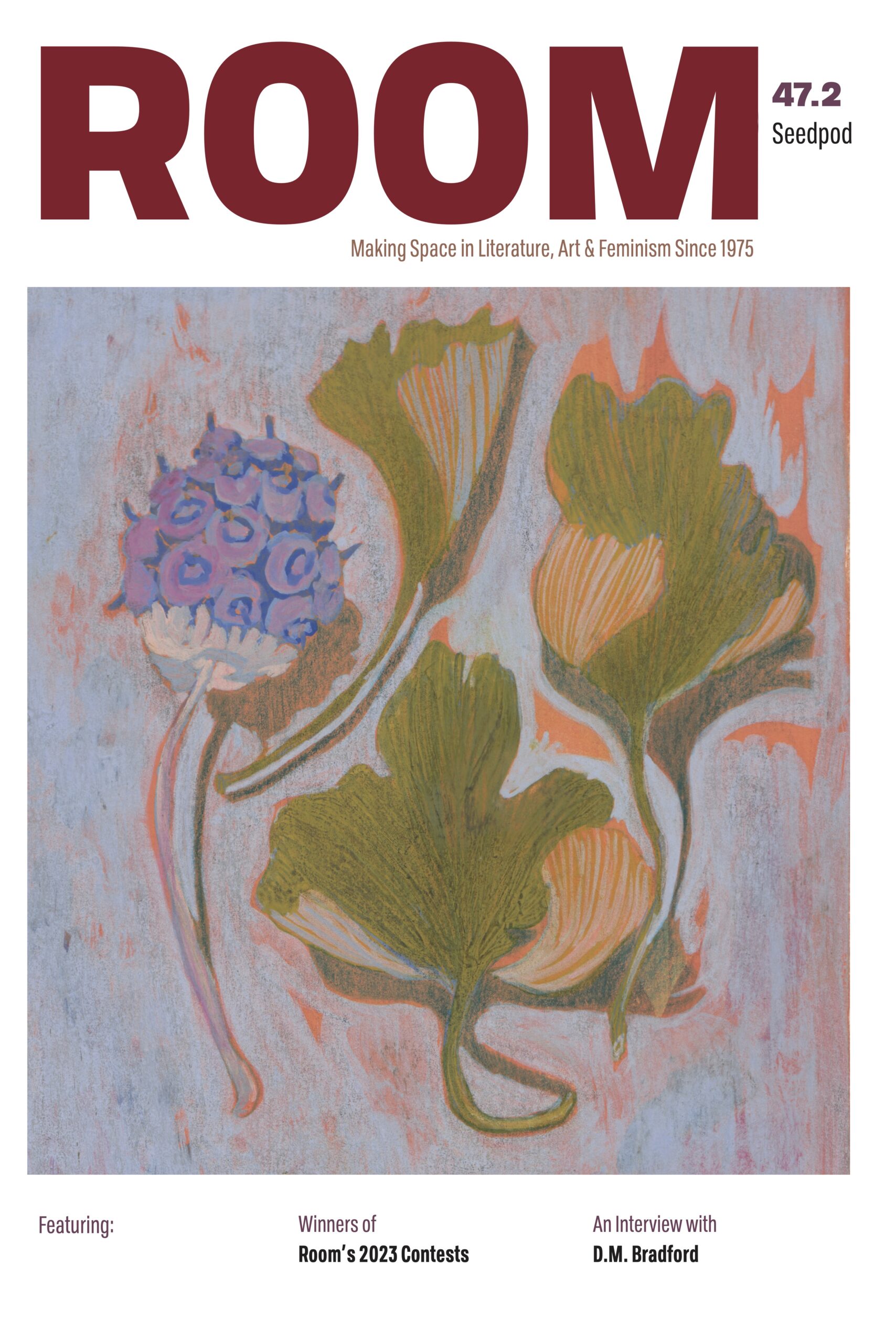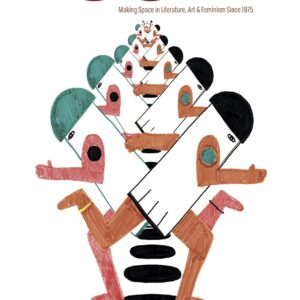Powerful in its brevity, Songs of Exile explores displacement, intimacy, and fear in short, chaotic bursts.
The poems that populate Songs of Exile, Bänoo Zan’s first English collection of poetry, aren’t autobiographical; however, they reveal a deep empathy for those who face, or have faced, political or geographical exile. Zan—a poet, translator, and the founder of Shab-e She’r, Toronto’s most diverse poetry reading and open mic series—knows isolation and longing as a newcomer who left her beloved Iran and landed in Canada in 2010.
Powerful in its brevity, Songs of Exile explores displacement, intimacy, and fear in short, chaotic bursts. “I’m not committed to a narrative structure,” writes Zan at the end of the collection. This is no more evident than in her poem “Toronto 2012”: “You answer my call / by calling / me / What does it mean / to mean / nothing?” she writes. Throughout the collection, these short, almost choppy lines, characterized by minimal punctuation, force readers to take pause, allowing them to easily digest Zan’s deeply affecting poems.
In Songs of Exile, Zan commits to the use of a number of literary devices, most notably repetition, as evidenced in the collection’s third poem, “Phoenix (III)”. “Feathers are together / phoenix is alone / Phoenix loves death / Fire loves life / Phoenix is fair / beauty is foul / Phoenix fears immortality / Fire fears death,” she writes. Repeating syllables, words, and entire phrases, Zan uses repetition for emotional impact, especially in moments exploring love and death.
Songs of Exile is often allegorical, brimming with familiar faces from religion and Greek mythology, among them Plato, Athena, Moses, and Oedipus, who, of course, imposed self-exile.
Zan juxtaposes these mythical figures against the struggles newcomers face coming to Canada today, reminding readers of the world’s long history of exile and longing for freedom. Footnotes provide readers with context and translations that are crucial to understanding these sparse, but complex, poems.
Zan is playful with language, exploring not only words themselves, but her role as a storyteller and wordsmith. “Language / is the music / my body is playing,” she writes in “Words (III) “I was not made / for this melody / nor the one before / I am forever silent.”
Songs of Exile is above all about longing—longing for a homeland, longing for a lover, longing for a better understanding of one’s self. “I had left my treasures to poverty / my story to those who prevail / I had left my self behind,” writes Zan in “Journey,” one of the collection’s many poems that force readers to consider the pieces newcomers leave behind in their homelands, and their ongoing struggle to recreate a place in which they feel they belong.

















